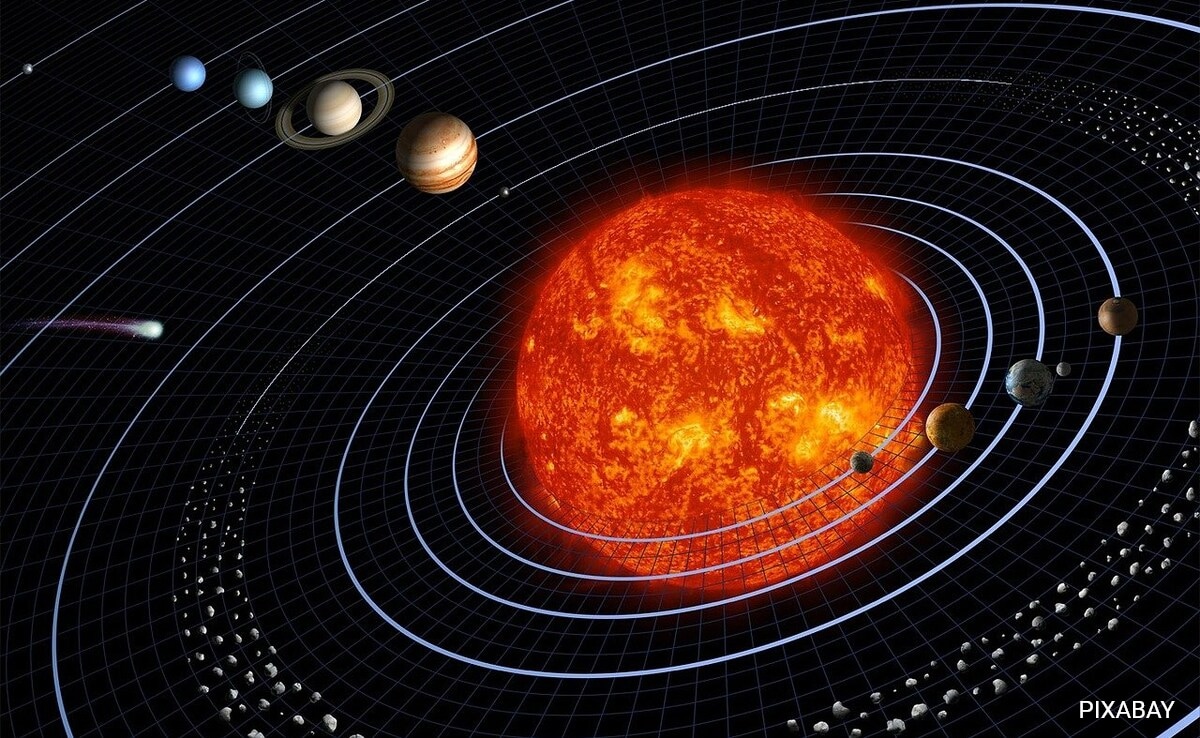
This will likely happen in around 6 billion years.(Representative pic)
The Sun gives energy to life on Earth, and without this star, we wouldn’t be here. But even stars have limited lifetimes, and someday our Sun will die and our planet will be swallowed by it before it becomes a white dwarf. Meanwhile, other planets in the solar system will be “crushed and ground to dust,” a new study has found. According to researchers from the University of Warwick, when the Sun runs out of fuel, it will become a white dwarf, exerting a huge gravitational pull that could suck our system into where it will be crushed. But there’s no need to panic just yet, as the scientists say this will likely happen in around 6 billion years.
“The sad news is that the Earth will probably just be swallowed up by an expanding Sun, before it becomes a white dwarf,” Professor Boris Gaensicke of the Department of Physics, University of Warwick, said, as per the New York Post.
“For the rest of the solar system, some of the asteroids located between Mars and Jupiter, and maybe some of the moons of Jupiter may get dislodged and travel close enough to the eventual white dwarf to undergo the shredding process we have investigated,” Mr Gaensicke added.
For the study – published in the journal Monthly Notices of the Royal Astronomical Society (MNRAS) – the researchers examined the brightness of three different white dwarf stars over 17 years. By watching how the brightness rose and fell, the scientists were able to determine when objects passed in front of the Sun and what kind of objects these were.
For most stars, the changes in brightness, or transits, are highly predictable as the planets orbit in their regular pattern. But around white dwarf stars, researchers found that the transits were highly chaotic and irregular.
Also Read | World Record Temperature Jump In Antarctica Sparks Concern
This suggests that the fate of bodies surrounding white dwarf stars is likely to be catastrophic and violent. Planets, asteroids and moons that come close to the dense core of a white dwarf are shredded as they are pulled into smaller pieces by gravity. Eventually, these pieces are ground into dust as they collide with each other, the researchers said.
In our own solar system, this will be the fate of many of the remaining bodies that aren’t swallowed or destroyed by the sun’s expansion, they added.
“The simple fact that we can detect the debris of asteroids, maybe moons or even planets whizzing around a white dwarf every couple of hours is quite mind-blowing, but our study shows that the behaviour of these systems can evolve rapidly, in a matter of a few years,” Mr Gaensicke said.
“While we think we are on the right path in our studies, the fate of these systems is far more complex than we could have ever imagined,” he added.




